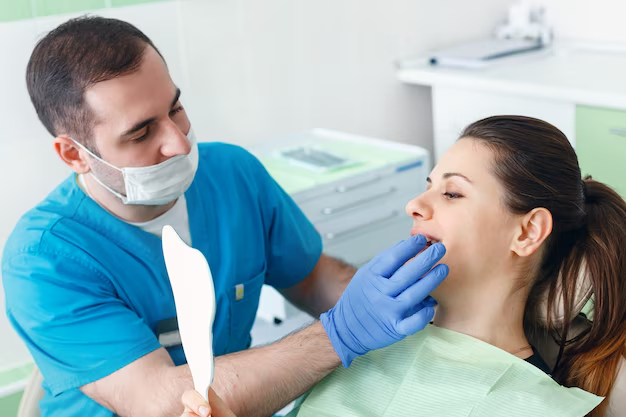Unveiling the Mystery: What Does Tongue Cancer Look Like?
When it comes to our health, especially concerning something as familiar yet crucial as our tongue, understanding potential warning signs becomes vital. But what does tongue cancer look like? Many of us aren't sure when to be concerned about those odd spots or persistent sores. Let's delve into this topic to paint a clearer picture, empowering you with knowledge and direction without causing undue alarm.
Recognizing the Symptoms: The Visual Cues of Tongue Cancer
Visible Signs on the Tongue
Tongue cancer often manifests itself through various changes in the appearance of the tongue. Here are some common signs that you might observe:
- Sores and Ulcers: Persistent sores that don't heal within a couple of weeks can be an early sign. These might appear as red or white patches.
- Discoloration: Unusual patches of white (leukoplakia) or red (erythroplakia) that don’t go away could signal a deeper issue.
- Lumps: A noticeable bump or lump on the tongue's surface that persists may warrant closer examination.
- Pain or Tenderness: A chronic sore throat or a feeling that there's something permanently lodged in your throat can often accompany tongue cancer.
When to Take Action
Having one or more of these symptoms does not mean you have tongue cancer. However, persistent or unusual symptoms that are new to you warrant a conversation with a healthcare provider. Early detection is crucial and can drastically improve outcomes.
Beyond the Symptoms: Risk Factors and Causes
Understanding the Causes
While the exact cause of tongue cancer isn't always clear, several risk factors have been identified:
- Tobacco Use: Smoking and smokeless tobacco significantly increase the risk.
- Alcohol Consumption: Regular consumption of alcohol can also raise your risk.
- HPV Infection: The human papillomavirus, particularly HPV-16, has been linked to many oral cancers, including tongue cancer.
Who is Most at Risk?
Age and gender also play roles in risk; middle-aged men have a higher prevalence of tongue cancer. Genetics can also predispose some individuals to this type of cancer, underscoring the importance of knowing your family's medical history.
Prevention Strategies: How to Lower Your Risk
While not all cases are preventable, there are proactive steps you can take to mitigate your risk:
- Avoid Tobacco and Limit Alcohol: Steering clear of these substances can significantly reduce your risk.
- Regular Dental Visits: Dentists can spot potential issues early; consider regular check-ups a vital part of your health routine.
- Oral Hygiene: Maintaining good oral health is not only beneficial but essential in catching anomalies early.
- Vaccination: HPV vaccines can prevent oral infections related to the virus, potentially reducing cancer risk.
Diagnosis and Evaluation
Medical Evaluation
If you identify suspicious changes or lesions on your tongue, your healthcare provider might start with a physical examination. A biopsy is often necessary to confirm a cancer diagnosis, where a small portion of the tissue is removed and analyzed.
The Role of Imaging
CT scans, MRIs, and PET scans are tools that might be used to assess the extent of cancer and plan treatments. These imaging techniques provide valuable insights into the spread and impact of cancer, guiding the next steps in medical care.
Navigating Treatment Options
Once diagnosed, several treatment options may be considered, often depending on the stage and specific characteristics of the cancer:
- Surgery: Removing the tumor and any affected surrounding tissue.
- Radiation Therapy: Targeting cancer cells with high-energy beams to destroy them.
- Chemotherapy: Drugs used to kill cancer cells, often combined with radiation for enhanced effectiveness.
- Targeted Therapy: These newer treatments focus on specific cancer cell mechanisms, sparing more healthy cells in the process.
Combining Treatments
Frequently, a combination of these treatments is recommended to maximize effectiveness. Your healthcare provider will tailor a treatment plan specific to your needs.
Coping and Support
Emotional and Physical Impact
A tongue cancer diagnosis can impact speech, eating, and emotional well-being. Fear, anxiety, and concerns about self-image are natural reactions. Support groups and counseling can provide much-needed emotional assistance.
Lifestyle Adjustments
For many, lifestyle changes are necessary post-diagnosis. A dietary adaptation may be needed if swallowing becomes difficult. Speech therapy might also be part of rehabilitation, helping regain clarity in communication.
Empowering Yourself with Knowledge
Being informed is empowering. While tongue cancer can be daunting, knowing the symptoms and taking steps for early detection increases the likelihood of successful treatment and full recovery. Remember, proactive health checks can make a significant difference in outcomes.
Key Takeaways: Your Summary at a Glance
- 👀 Know the Signs: Look out for persistent sores, discolorations, lumps, and pain.
- 🚬💡 Avoid Risk Factors: Refrain from tobacco, limit alcohol intake, and consider HPV vaccination.
- 🩺 Prioritize Check-ups: Regular dental and health visits can catch problems early.
- 🤝 Seek Support: Don’t underestimate the power of support groups and counseling.
- 🔄 Stay Informed: Educate yourself about symptoms and encourage others to do the same.
This comprehensive look at tongue cancer equips you with the information necessary to recognize potential warning signs and underscores the importance of early intervention, making it a matter of understanding and vigilance rather than fear.

Related Articles
- Are Breast Cancer Lumps Painful
- Are Chills a Sign Of Cancer
- Are Colon Spasms a Sign Of Cancer
- Are Lytic Lesions Always Cancer
- Are Polyps Cancer
- Can a Blood Test Detect Cancer
- Can a Ct Scan Detect Cancer
- Can a Dexa Scan Show Cancer
- Can a Gastric Emptying Scan Show Cancer
- Can a Lung Biopsy Cause Cancer To Spread
